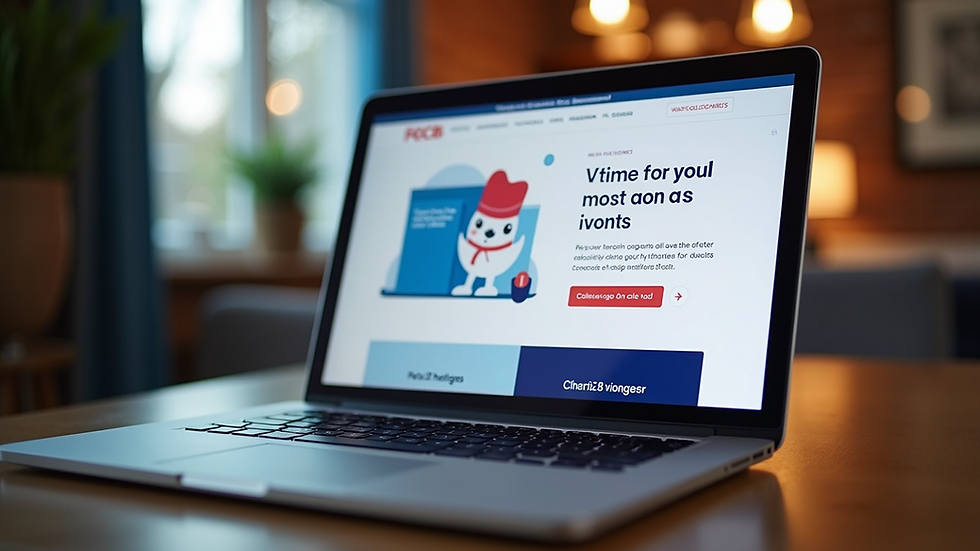The Importance of Being an Informed Voter
- AJ

- Sep 8
- 4 min read
Voting is one of the most powerful tools citizens have in a democracy. Yet, many people cast their ballots without fully understanding the candidates, policies, or issues at stake. Being an informed voter means more than just showing up on election day. It involves researching, questioning, and critically evaluating information to make choices that truly reflect your values and interests. This blog post explores why being informed is crucial, how it benefits society, and practical steps you can take to enable your voter empowerment.
Why Voter Empowerment Matters
Voter empowerment is about giving individuals the knowledge and confidence to participate effectively in elections. When voters are informed, they can make decisions that lead to better governance and policies that serve the public good. Empowered voters hold elected officials accountable and help shape the future of their communities.
An informed electorate reduces the risk of manipulation by misinformation or propaganda. It also encourages higher voter turnout because people feel their vote matters when they understand the issues. For example, knowing the impact of local tax policies or education reforms can motivate citizens to vote in local elections, which often have a direct effect on their daily lives.

How to Become an Informed Voter
Becoming an informed voter requires effort but is entirely achievable with the right approach. Here are some practical steps:
Research Candidates and Policies
Use reliable sources to learn about candidates’ backgrounds, platforms, and voting records. Official campaign websites, nonpartisan voter guides, and reputable news outlets are good starting points.
Understand the Issues
Identify key issues in the election, such as healthcare, education, or the environment. Look for balanced information that explains the pros and cons of different policy proposals.
Attend Candidate Forums or Debates
These events provide opportunities to hear directly from candidates and ask questions. They also reveal how candidates handle pressure and articulate their positions.
Check Voting Procedures and Deadlines
Knowing where, when, and how to vote ensures your participation counts. This includes understanding absentee or early voting options.
Discuss with Others
Conversations with friends, family, or community groups can provide new perspectives and clarify your own views.
By following these steps, you can confidently participate in elections and contribute to a healthier democracy.
The Role of Media and Technology in Voter Education
In today’s digital age, media and technology play a significant role in shaping voter knowledge. While they offer vast resources, they also present challenges such as misinformation and bias. It is essential to critically evaluate the information you encounter online.
Use Fact-Checking Websites
Before sharing or accepting information, verify it through trusted fact-checking organizations.
Diversify Your News Sources
Avoid relying on a single news outlet. Explore multiple perspectives to get a well-rounded understanding.
Leverage Voter Education Tools
Many websites and apps provide personalized information about candidates and issues based on your location and preferences.
By harnessing technology wisely, you can enhance your understanding and avoid common pitfalls.

Practical Benefits of Being an Informed Voter
Being informed has tangible benefits beyond just casting a ballot. It empowers you to:
Influence Policy Outcomes
Your vote helps decide which policies get implemented, affecting everything from local schools to national healthcare.
Hold Leaders Accountable
Knowing what candidates promised allows you to demand transparency and follow through on their commitments.
Promote Civic Engagement
Informed voters often become advocates, encouraging others to participate and strengthening community ties.
Reduce Political Polarization
Understanding different viewpoints fosters respectful dialogue and cooperation.
For example, a voter who understands the implications of a proposed tax increase can advocate for fairer policies or support candidates who align with their economic views.
Taking Action: How to Empower Yourself and Others
Empowering yourself as a voter is just the beginning. You can also help others become informed and engaged. Here are some actionable recommendations:
Share Reliable Information
Use social media or community meetings to spread accurate election details and resources.
Volunteer for Voter Education Campaigns
Many organizations seek volunteers to help register voters and provide nonpartisan information.
Encourage Dialogue
Create spaces for open discussions about elections and issues without judgment.
Support Policies That Promote Voter Access
Advocate for measures like early voting, mail-in ballots, and accessible polling places.
By taking these steps, you contribute to a more informed and active electorate. Remember, to truly empower voters, we must all play a part in fostering knowledge and participation.
Your Vote is Your Voice: Make It Count
Every election is an opportunity to shape the future. When you take the time to become an informed voter, you ensure that your voice is heard clearly and effectively. Voting is not just a right but a responsibility that requires preparation and awareness.
By staying informed, you protect the integrity of the democratic process and help build a society that reflects the will and needs of its people. So, before the next election, commit to learning, questioning, and engaging. Your vote matters more than you think.
Important links:
Our data in action - https://www.myvoterwisdom.com/blog
Our raw data - https://www.myvoterwisdom.com/election-data



Comments